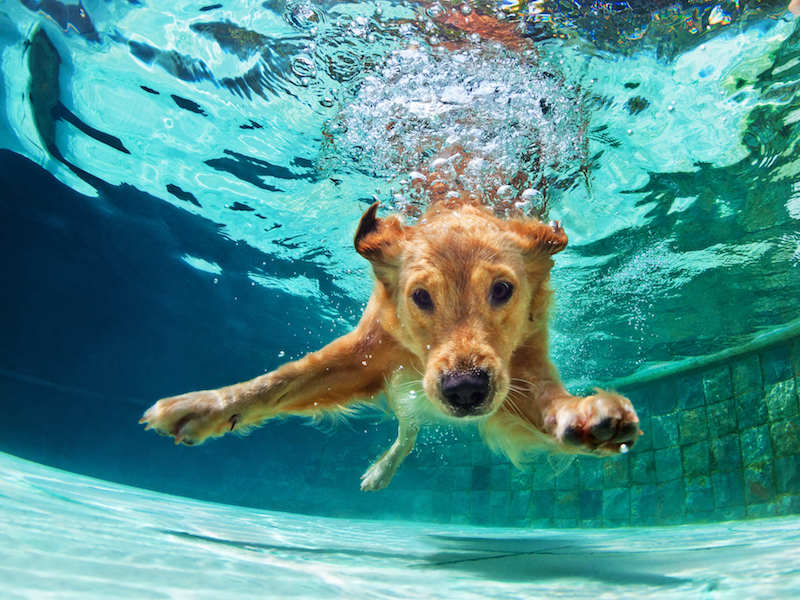
There are many factors which can affect the electrical circuitry of your hearing aids. Hearing aids seem to self-destruct under extreme moisture conditions. Even if you already know that and take care to protect your investment from the shower, pool, or a good face washing, more than likely you are missing the most common cause of water damage in hearing aids: humidity.
Irreversible damage is done by moisture that you can’t see. It’s important to educate yourself about why humidity harms hearing aids.
Understanding Humidity
Humidity is a word that gets bounced around a lot, especially during the summer months, but what does it mean? PBS defines humidity as water molecules in the air. When displayed as a percentage, for example, the relative humidity is 40 percent today, it refers to the amount of water vapor in the air compared to what air could hold. When you can feel wetness in the air, that means the relative humidity is high.
Humans cool their body by sweating so that makes us very sensitive to humidity. When humidity levels are too high our sweat won’t evaporate as fast. Moisture and electronics don’t mix well and that includes hearing aids.
Understand Humidities Effect on Hearing Aids
Too high or, too low, humidity can affect your hearing aids. When water vapor percentages are high condensation can collect on the intricate mechanisms that make electronic devices work, and low humidity can lead to brittle core materials.
Hearing aids rely heavily on internal electronics to work. A sophisticated audio processing chip controls noise levels in a newer hearing aid. It’s what is behind elegant features like:
- Noise reduction
- Anti-feedback
- Targeted listening programs
- Digital sound streaming
Moisture can accumulate inside the hearing aid when humidity is high and harm that component. Batteries get ruined and you get corrosion of elements inside of the case. You might as well drop your hearing aid in a pool full of water, and the effect is the same.
Dealing With Humidity
Water resistant models are currently available. Having this feature doesn’t mean you can swim with your hearing aids in your ear, but it does provide some protection from humidity and other weather-related issues like getting caught in an unforeseen rainstorm or even sweat when you work out.
When it’s very humid try to decrease indoor water vapor by utilizing a dehumidifier. It’s not just your hearing aid that will benefit, there are health benefits, and other electronic devices in the home will also be protected. Dehumidifiers reduce the risk of mold, mildew and dust mites, so everyone breathes a little better, too. Although a house or room dehumidifier will help protect your hearing aids, it’s not enough. There are a few other things you can and should do.
Look for the dehumidifier made for hearing aids. They come at all costs levels. Drying kits rely on silica gel crystals to protect the electronics. Moisture is eliminated by putting the hearing aids into the dehumidifier for a couple of hours. Drying your hearing aids as you sleep at night can be done using specially designed storage containers. If it is very humid and you have no other way, uncooked rice can reduce moisture.
Don’t forget to leave the battery door open when you store your device. By pulling that door open before you put the hearing aid down, you expose the batteries and other elements to the air, allowing any condensation built up to evaporate naturally. Do this all year round, not just in the summer months.
Always store your hearing aids in a cool, dry place. On the table in the sun, in the glove compartment, or in a hot room are examples of where not to store your hearing aids.
Other Moisture Factors
Damage can be caused by other types of wetness. Take precautions to protect them from other kinds of wet such as:
- Don’t touch your hearing aids with hands that are still moist from lotion.
- Find a safe place to store your hearing aids if headed for the pool or beach.
- When exercising wear a sweatband. It’s a good practice whether you wear your hearing aids when you workout or not. Sweat in your ears can cause problems later.
- Check surfaces before you put your hearing aid down. A glass or coffee cup can leave moisture behind.
Your hearing aids are a valuable asset, so treat them that way. Keep in mind how moisture can damage your hearing aids and make sure to prevent water from getting in them. If your hearing aid already has water damage make an appointment for service with a hearing aid specialist.




